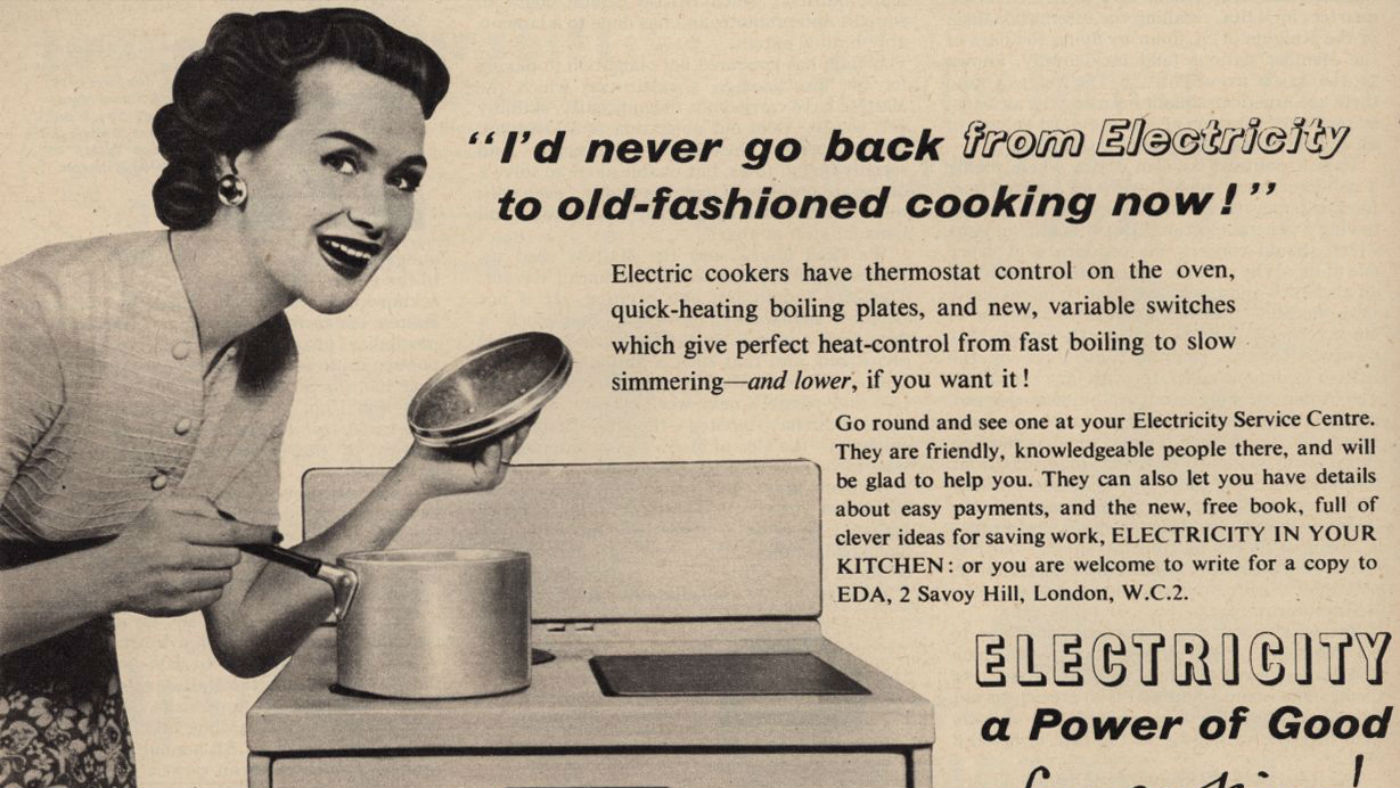‘Sexist’ banned TV ads: how Philadelphia and VW fell foul of new rules
Advertising watchdog’s crackdown triggers concerns of ‘morality policing’

A free daily email with the biggest news stories of the day – and the best features from TheWeek.com
You are now subscribed
Your newsletter sign-up was successful
New television advertisements for Volkswagen and Philadelphia cream cheese have become the first to be axed under the UK’s new rules banning “harmful” gender stereotyping in marketing.
The ban on adverts featuring gender stereotyping deemed likely to cause “serious or widespread offence” came into effect in June, and prohibits depictions that may limit “how people see themselves and how others see them and the life decisions they take”.
This week, the Advertising Standards Authority (ASA) exercised its new veto powers in response to a flood of complaints from TV viewers about the two new commercials.
The Week
Escape your echo chamber. Get the facts behind the news, plus analysis from multiple perspectives.

Sign up for The Week's Free Newsletters
From our morning news briefing to a weekly Good News Newsletter, get the best of The Week delivered directly to your inbox.
From our morning news briefing to a weekly Good News Newsletter, get the best of The Week delivered directly to your inbox.
The watchdog’s investigations manager, Jess Tye, told the BBC that sexist stereotypes in advertising could cause “real-world harms”.
What was wrong with the ads?
The advert for Volkswagen’s new eGolf car shows “a sleeping woman, a man in a tent on a sheer cliff face, two male astronauts in a space ship and a male para-athlete with a prosthetic leg doing the long jump”, says the London Evening Standard.
The final scene shows a woman sitting on a bench next to a pram, prompting complaints that the ad depicts “men engaged in adventurous activities in contrast to a woman in a care-giving role”, the newspaper reports.
A free daily email with the biggest news stories of the day – and the best features from TheWeek.com
That view is shared by the ASA, which says: “We concluded that the ad presented gender stereotypes in a way that was likely to cause harm.”
Meanwhile, the newest advert for the Mondelez-owned soft cheese brand is the subject of 128 complaints received by the watchdog.
The advert depicts two new fathers “leaving a baby on a restaurant buffet conveyor belt while they were distracted by the food”, says The Daily Telegraph.
“Complainants said the ad perpetuated a harmful stereotype by suggesting that men were incapable of caring for children and would place them at risk as a result of their incompetence,” according to the newspaper.
And the reaction to the ban?
Mondelez argues that the Philadelphia ad shows a “positive image of men with a responsible and active role in childcare in modern society”, the BBC reports.
The Guardian says the company has told the ASA that the new rules have put them in a “no-win situation”, having “specifically chosen two dads to avoid depicting the stereotypical image of showing two new mums handling all the childcare responsibilities”.
Volkswagen also denies any sexist intent in its ad, claiming it is supposed to demonstrate that “caring for a newborn was a life-changing experience about adaptation” akin to more adventurous activities. The German carmaker says that the fact the female climber was asleep “could be said to demonstrate not that she was passive, but that she was relaxed and comfortable in a hostile environment”.
The firm points to the final on-screen text in the commercial, which says: “When we learn to adapt we can achieve anything.”
Other critics also argue that the new rules have gone too far, reports The Times. Geraint Lloyd-Taylor, a partner in the advertising team at legal firm Lewis Silkin, described the bans as “disproportionate” and accused the ASA of acting like the “morality police”.
“While the ASA doubtless has good intentions, it has seemingly let its zeal to enforce the new rules override its common sense,” he said.
“What was meant to be a liberal and progressive change in approach to offensive and socially irresponsible gender stereotyping has become something that looks very illiberal and even regressive.”
-
 How to Get to Heaven from Belfast: a ‘highly entertaining ride’
How to Get to Heaven from Belfast: a ‘highly entertaining ride’The Week Recommends Mystery-comedy from the creator of Derry Girls should be ‘your new binge-watch’
-
 The 8 best TV shows of the 1960s
The 8 best TV shows of the 1960sThe standout shows of this decade take viewers from outer space to the Wild West
-
 Microdramas are booming
Microdramas are boomingUnder the radar Scroll to watch a whole movie
-
 Sydney Sweeney's 'great jeans': why American Eagle ad is so controversial
Sydney Sweeney's 'great jeans': why American Eagle ad is so controversialTalking Point Series of adverts featuring American actress Sydney Sweeney cause storm around race and eugenics
-
 The magician who secretly smashed the Magic Circle's glass ceiling
The magician who secretly smashed the Magic Circle's glass ceilingUnder The Radar Sophie Lloyd lurked in the all-male society by posing as a teenage boy for nearly two years, but was expelled after revealing her true identity
-
 FKA Twigs and Jeremy Allen White – the tale of two Calvin Klein ads
FKA Twigs and Jeremy Allen White – the tale of two Calvin Klein adsTalking Point Her advert was banned by the advertising watchdog while his caused a 'breathless response' after going viral
-
 Gender stereotypes banned from UK adverts: how the ban works
Gender stereotypes banned from UK adverts: how the ban worksIn Depth Advertising watchdog brings in new measures to stop commercials reinforcing harmful stereotypes
-
 The worst advertising campaigns of 2017
The worst advertising campaigns of 2017In Depth From Pepsi to Nivea to McDonald’s: this year's biggest missteps from some of the world’s biggest brands